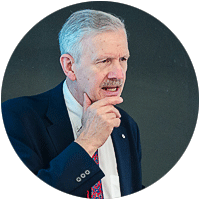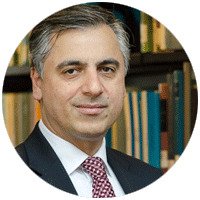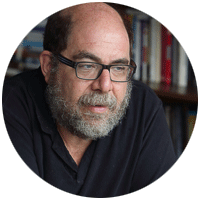Publications et lettres d’opinions
Payam Akhavan: In Search of a Better World
Faculty member Payam Akhavan has embarked on a five-city tour of Canada to give the 2017 CBC Massey Lectures. His book, In Search of a Better World, has been published by House of Anansi Press. The book made the Globe and Mail‘s bestsellers list a week after release. The 2017 CBC Massey Lectures will be broadcast on IDEAS November 6 -10.
Akhavan was in Whitehorse on September 13, in Vancouver on September 15, in Montreal on September 19, and in St. John’s, NL on September 22. People in Toronto can catch the last lecture of the tour next week at the following venue:
Wednesday, October 4 – Lecture 5 – The Spirit of Human Rights
Koerner Hall, Toronto ON
Telus Centre, 273 Bloor St. W.
Tickets $50/$40, students/seniors $5 discount
Phone: 416-408-0208
Website: RCM Tickets
Protocole de Montréal: 30 ans plus tard, les leçons à tirer
Sébastien Jodoin, Hamish van der Ven, Le Devoir, 14 septembre 2017
Voilà trente ans, devant la progression d’un trou découvert dans la couche d’ozone, les nations du monde entier sont passées aux actes afin d’adopter le Protocole de Montréal. Généralement considéré comme l’accord international le plus efficace de l’histoire en matière d’environnement, le Protocole a permis l’élimination graduelle de 98 % des substances appauvrissant la couche d’ozone (SACO), tant et si bien que le « trou » résiduel qui surplombe l’Antarctique devrait se refermer d’ici quelques dizaines d’années.
À l’aube du 30e anniversaire de la signature du Protocole de Montréal (le 16 septembre), il convient de se demander pourquoi cet accord a fonctionné et quelles leçons s’en dégagent quant aux mesures à prendre pour contrer les changements climatiques. Lire la suite…
Migrants: le défi de la cohabitation
Jean Siag, La Presse, 10 septembre 2017
L’afflux de demandeurs d’asile au Québec crée des remous, soulève des craintes, entraîne un repli. Désinformation, disent les uns, inquiétude légitime, disent les autres. Dans ce bras de fer, la question de la cohabitation refait surface. Est-ce que la mixité favorise l’ouverture? …
Le philosophe Daniel Weinstock, professeur à la faculté de droit de l’Université McGill et directeur de l’Institut de recherche sur les politiques sociales et de santé de McGill, admet que la réalité québécoise – qui comprend la défense de la langue française et les débats interreligieux – est complexe. Lire la suite…
NAFTA and environmental protection: Don’t silence the ‘Voice of the North American Environment’
 Armand De Mestral and Markus Gehring, Corporate Knights, 7 September 2017
Armand De Mestral and Markus Gehring, Corporate Knights, 7 September 2017
Foreign Minister Chrystia Freeland has expressed the desire for Canada to include environmental protection in a renewed North American Free Trade Agreement (NAFTA); a laudable objective and a very positive step forward. However, in light of the environmental and sustainable development chapters recently included in the Trans-Pacific Partnership (TPP) and the Comprehensive Economic and Trade Agreement (CETA), it is important to raise the question of the future status of the North American Agreement on Environmental Cooperation (NAAEC). This is otherwise known as one the NAFTA “side agreements” that has served as the voice of the North American environment. Keep reading…
Here’s how we can hold Syria responsible for its crimes
 Payam Akhavan and Andrew Stobo Sniderman, The Ottawa Citizen, 3 September 2017
Payam Akhavan and Andrew Stobo Sniderman, The Ottawa Citizen, 3 September 2017
After Bashar Assad suffocated children with poison gas in April, Donald Trump retaliated with Tomahawk missiles. But Syria’s victims deserve more than occasional vigilantism. The crimes continue: photos released by the U.S. State Department suggest the Syrian regime is incinerating the bodies of thousands of murdered political prisoners.
The Assad government must face judgment by an international court. In theory, Assad and his top generals should be tried by the International Criminal Court for systemic war crimes and crimes against humanity. In practice, the Russian veto at the United Nations Security Council has made that impossible. Keep reading…
Happy Birthday, Bill 101, or How Camille Laurin inadvertently saved Canada
 Daniel Weinstock, In Due Course blog, 25 August 2017
Daniel Weinstock, In Due Course blog, 25 August 2017
…My anglo friends from the neighborhood and my franco friends from school might have been living on different planets. Bill 101, which was enacted 40 years ago today, changed all that. Immigrants to Quebec would henceforth have to send their kids to French schools…
Few laws have polarized opinion in Canada as much as 101. Francophones support it as a necessary tool to protect the French language from erosion, while many Anglophones, both within Quebec and outside of it, see it as an ignoble attack on basic civil rights.
The point I want to make however is that Canadians should celebrate the law because it may very well have saved Canada. Let me explain. Keep reading…
Eli Lilly’s odyssey to use a fake rule and fake news to protect bad patents
 E. Richard Gold, Stat News, 16 August 2017
E. Richard Gold, Stat News, 16 August 2017
Someone high up in Eli Lilly and Company must be a “South Park” fan. When the company failed to ensure that the patents it filed on two blockbuster drugs, Zyprexa and Strattera, complied with Canadian law, it decided to “Blame Canada” rather than take responsibility for its error…
In essence, the company miscombined and mischaracterized statements taken out of context to invent a non-existent legal rule it called the promise doctrine and then blamed its application by Canadian judges for the loss of two valuable patents. It then spread fake news that Canada possessed this fictional rule… Keep reading…
NAFTA 2.0 and Beyond: Levelling the patent playing field
 E. Richard Gold, CIGI online, 15 August 2017
E. Richard Gold, CIGI online, 15 August 2017
The United States has been the main driver of intellectual property (IP) protection in international trade agreements since the 1980s. It has set up a dynamic in which the United States makes demands of the IP laws of other countries, with those other countries resisting to the extent they can. But this dynamic overlooks a serious flaw: it does not address either discrimination or lack of reciprocity in the US patent system. This essay outlines some of the ways in which the US patent system discriminates against foreign firms and suggests ways for Canada, both within and outside the North American Free Trade Agreement (NAFTA), to address these. Keep reading…
Secret court order that let telcos search a Montrealer’s home a growing trend
Jacob Serebrin, Montreal Gazette, 4 August 2017
The increasing use of Anton Piller orders is raising concerns that they are being used as private search warrants. Intended to prevent the destruction of evidence in lawsuits, Anton Piller orders have been called a “nuclear weapon” of  civil law. But as their use increases in Canada, concerns are being raised that these court orders — which are issued in secret — are being used as private search warrants…
civil law. But as their use increases in Canada, concerns are being raised that these court orders — which are issued in secret — are being used as private search warrants…
Unlike a search warrant, an Anton Piller order doesn’t allow the plaintiff in a civil case to enter the defendant’s home without permission, said Rosalie Jukier, a law professor at McGill University who teaches civil procedure. “The defendant must let the seizing party in to the premises, but because the sanction of not letting them in is contempt of court,” Jukier said, “this has been called a distinction without a meaningful difference.” Keep reading…
Six Inconvenient Truths about NAFTA Renegotiations
E. Richard Gold & Jean-Frédéric Morin, CIGI online, 18 July 2017
The renegotiation of the North American Free Trade Agreement’s (NAFTA’s) standards on patents is not good news for Canada. Any give by Canada will be costly not only to our health care system, but also to Canadian innovators.
This grim prospect is not apparent in policy makers’ reassuring declarations. The United States Trade Representative Robert Lighthizer talks about “modernizing” rules negotiated 25 years ago, when “digital trade was in its infancy.” Canadian Minister of Foreign Affairs Chrystia Freeland officially welcomes the US initiative as an opportunity to “best align NAFTA to new realities.” Like her American counterpart, she calls for a “modernized NAFTA.” Framed this way, the renegotiation of NAFTA patent provisions might sound like a mere update. And who is against updates? Keep reading…
Distinctions
François Crépeau, titulaire d’une Chaire International Francqui Professor
Nouvelles de la Faculté de droit de McGill, 31 août 2017
La Faculté de droit a le plaisir d’annoncer que le professeur François Crépeau a reçu la Chaire International Francqui Professor en sciences humaines pour l’année 2017-2018… Cette nomination prestigieuse ajoute le professeur Crépeau à la liste illustre de récipiendaires de cette chaire, qui compte plusieurs prix Nobel et des sommités intellectuelles, dont Michel Foucault. Lire la suite…
Les professeurs Fabien Gélinas et René Provost recevront la distinction d’Avocat émérite
Nouvelles de la Faculté de droit de McGill, 7 août 2017
Le 3 août, le Barreau du Québec annonçait les noms des avocates et des avocats qui recevront cette année la distinction Avocat émérite (Ad. E.). Nous avons le plaisir de souligner parmi eux plusieurs membres de la communauté de la Faculté de droit. Nous tenons ainsi à féliciter chaleureusement les professeur Fabien Gélinas, Ad. E., et René Provost, Ad. E., ainsi que nos diplômés Francine Payette, Ad. E. (BCL’81), Shahir Guindi, Ad. E. (BCL’89, LLB’89) et Daniel Desjardins, Ad. E. (LLM’83). Lire la suite…
uOttawa honours Justice Louise Otis
University of Ottawa media advisory, 16 June 2017
On June 21, 2017, the University of Ottawa awarded eight honorary doctorates, including one to Adjunct Professor Louise Otis. Justice Otis participated in the uOttawa Faculty of Law’s Convocation Ceremony, where she gave the Convocation Address.
[ JUMP TO THE CURRENT EDITION OF FOCUS ONLINE ]
.

